I want to be able to write a function which receives a number in scientific notation as a string and splits out of it the coefficient and the exponent as separate items. I could just use a regular expression, but the incoming number may not be normalised and I'd prefer to be able to normalise and then break the parts out.
A colleague has got part way of an solution using VB6 but it's not quite there, as the transcript below shows.
cliVe> a = 1e6
cliVe> ? "coeff: " & o.spt(a) & " exponent: " & o.ept(a)
coeff: 10 exponent: 5
should have been 1 and 6
cliVe> a = 1.1e6
cliVe> ? "coeff: " & o.spt(a) & " exponent: " & o.ept(a)
coeff: 1.1 exponent: 6
correct
cliVe> a = 123345.6e-7
cliVe> ? "coeff: " & o.spt(a) & " exponent: " & o.ept(a)
coeff: 1.233456 exponent: -2
correct
cliVe> a = -123345.6e-7
cliVe> ? "coeff: " & o.spt(a) & " exponent: " & o.ept(a)
coeff: 1.233456 exponent: -2
should be -1.233456 and -2
cliVe> a = -123345.6e+7
cliVe> ? "coeff: " & o.spt(a) & " exponent: " & o.ept(a)
coeff: 1.233456 exponent: 12
correct
Any ideas? By the way, Clive is a CLI based on VBScript and can be found on my weblog.
